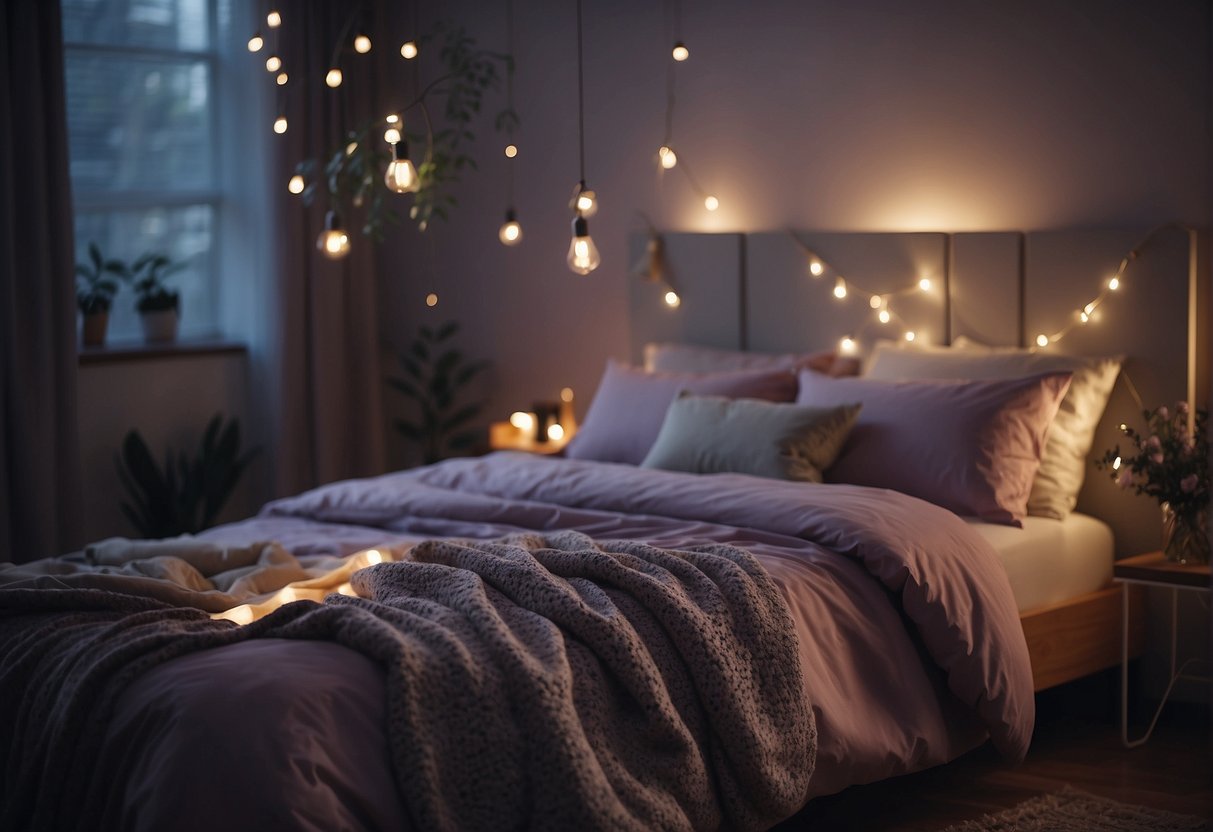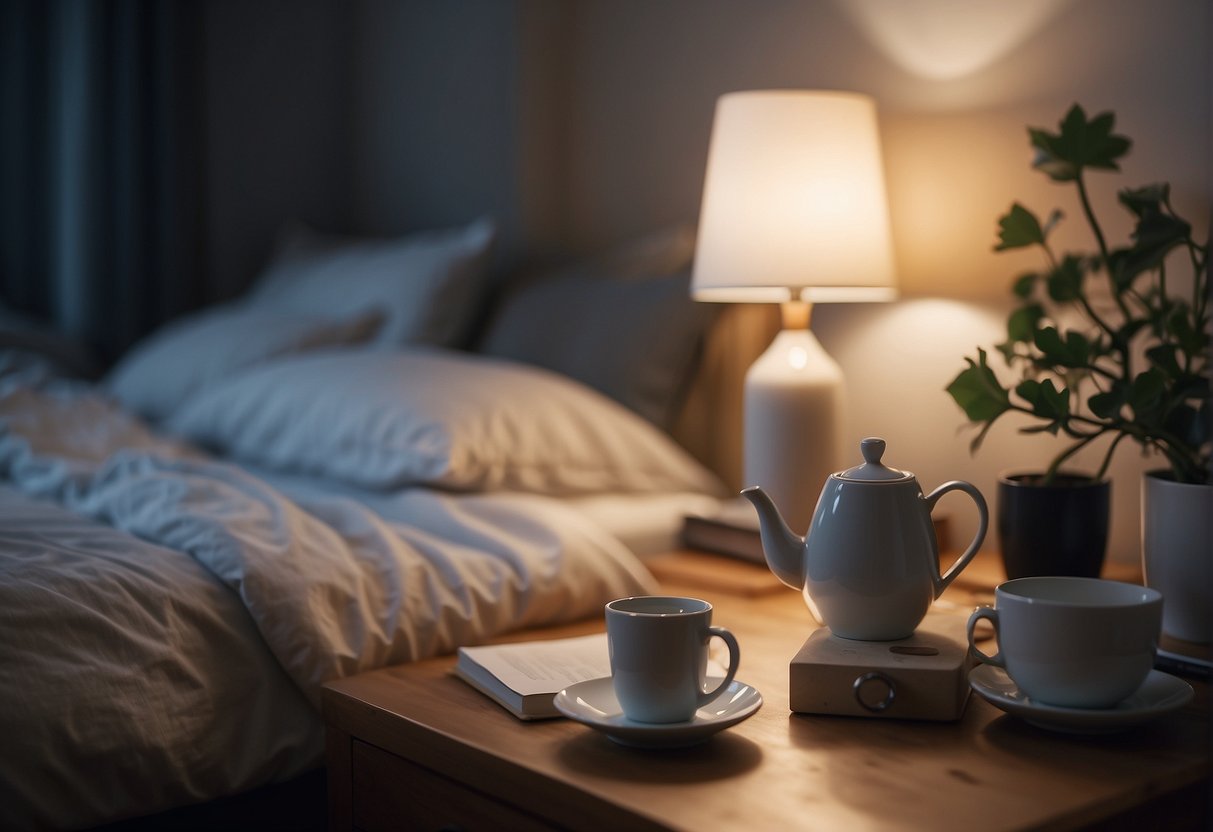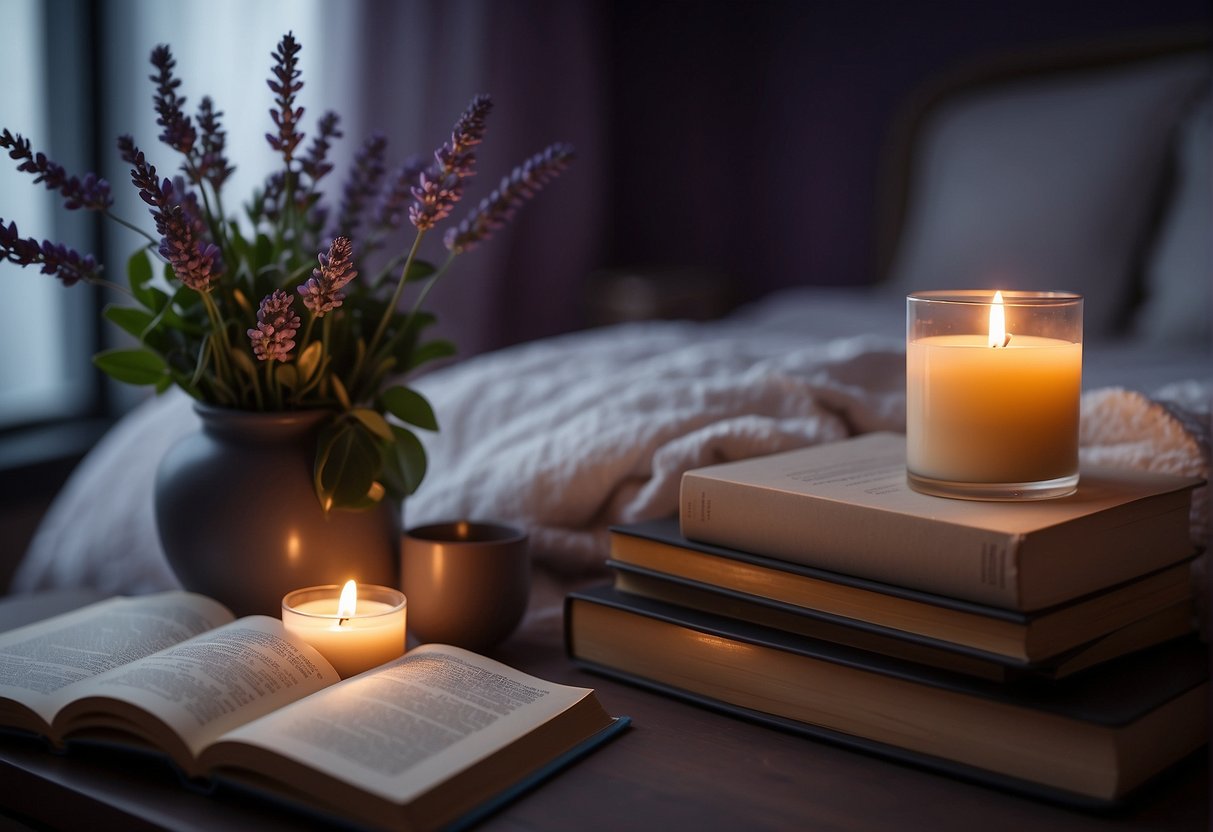How to Sleep Better with Anxiety: Proven Techniques for a Restful Night
Anxiety can have a significant impact on sleep quality, often leading to tossing and turning, trouble falling asleep, and frequent awakenings throughout the night. With a racing mind and tense body, it can feel incredibly challenging to get the restorative rest you need. Thankfully, there are strategies you can implement to improve your sleep, even when dealing with anxiety.

Understanding the connection between sleep and anxiety is the first step to addressing the issue. Sleep and anxiety disorders are often deeply intertwined, and there are numerous ways to ease the anxiety that interferes with sleep. By embracing a combination of lifestyle adjustments, relaxation techniques, cognitive strategies, and professional help when necessary, it’s possible to sleep better despite struggling with anxiety.
Key Takeaways
- Improving sleep while coping with anxiety requires understanding the connection between the two
- A combination of lifestyle adjustments, relaxation techniques, and cognitive strategies can help
- Seeking professional guidance may be necessary for some individuals to achieve better sleep with anxiety
Understanding Anxiety and Its Impact on Sleep
When it comes to the relationship between anxiety and sleep, there’s a lot to unpack. In this section, we’ll explore how anxiety can impact a person’s sleep quality and what we can do to manage anxiety-related sleep disturbances.
The Science of Anxiety and Sleep
Anxiety is a natural response to stress, and it can be particularly harmful to our sleep pattern. Studies have shown that there’s a strong link between sleep and anxiety, as anxiety can lead to a range of sleep issues, like difficulty falling asleep, frequent awakenings, and even insomnia. Moreover, a lack of sleep can also exacerbate anxiety, creating a vicious cycle.
How it works: Anxiety activates our body’s fight or flight response, causing an increase in stress hormones which can make it difficult to relax and fall asleep. In addition, our racing thoughts and heightened awareness can disrupt our natural sleep cycle.
Recognizing Anxiety-Related Sleep Disturbances
To identify sleep disturbances caused by anxiety, it’s important to know the common signs. These may include:
- Difficulty falling asleep: People with anxiety often have trouble quieting their thoughts, which can lead to a longer time to fall asleep.
- Restless sleep: Anxiety can cause individuals to experience frequent awakenings, often due to racing thoughts or a heightened sense of worry.
- Nightmares: Anxiety may trigger nightmares or vivid dreams, which in turn can worsen sleep quality.
- Sleep paralysis: Some individuals with anxiety may also experience sleep paralysis, a temporary inability to move or speak upon waking up, leading to heightened anxiety and sleep disturbances.
By recognizing these anxiety-related sleep disturbances, we can take steps to address the root cause of our anxiety and improve sleep quality.
Lifestyle Adjustments for Better Sleep

Diet and Nutrition Tips
Eating a balanced diet is essential for improving sleep quality while managing anxiety. Foods rich in magnesium, such as almonds and spinach, can help reduce anxiety symptoms. Consuming foods high in tryptophan, like poultry and soy products, can encourage the production of serotonin, a neurotransmitter that promotes relaxation.
Consider incorporating foods rich in Vitamin B6, such as bananas and fish, to support the healthy production of melatonin, the sleep hormone. Avoid consuming large meals too close to bedtime, as this can lead to indigestion and difficulty falling asleep.
Exercise and Its Role in Sleep
Regular physical activity can have a significant impact on sleep quality by reducing anxiety symptoms and promoting relaxation. However, it’s essential to consider the timing of your exercise.
Engaging in moderate to vigorous exercise during the day can help improve sleep quality, while strenuous physical activity too close to bedtime can stimulate the nervous system, making it harder to fall asleep.
I recommend aiming for at least 30 minutes of moderate-intensity exercise, such as brisk walking, swimming, or cycling, most days of the week.
Creating a Sleep-Conducive Environment
Your sleep environment plays a crucial role in promoting restful sleep. Maintain a cool, dark, and quiet space that’s free from distractions and clutter. Invest in a comfortable mattress and pillows suited to your particular sleep needs.
Incorporating relaxation techniques, such as deep breathing exercises or progressive muscle relaxation, can help ease anxiety and prepare your mind for sleep. Establish a regular sleep schedule by going to bed and waking up at the same time every day, even on weekends.
Limit exposure to electronic devices at least an hour before bedtime, as the blue light emitted can disrupt melatonin production. Instead, opt for relaxing activities such as reading a book, taking a warm bath, or practicing gentle stretches to signal your body it’s time to wind down.
Relaxation Techniques Before Bed

Mindfulness and Meditation
Incorporating mindfulness and meditation before bedtime can be an effective way to manage anxiety and improve sleep quality. Setting aside a few minutes each day to focus on your breath and be present in the moment can help reduce stress and calm racing thoughts. One helpful method is to try a guided meditation specifically designed for sleep.
Deep Breathing Exercises
Practicing deep breathing exercises before bed can promote relaxation and lower stress levels. One simple technique, for example, involves inhaling for a count of 4, holding for a count of 7, and exhaling for a count of 8. By concentrating on your breath, your attention shifts away from anxious thoughts, calming both your mind and body.
| Inhale | Hold | Exhale |
|---|---|---|
| 4 | 7 | 8 |
Progressive Muscle Relaxation
Progressive muscle relaxation is another effective method to decrease anxiety and enhance sleep quality1. This technique involves systematically tensing and relaxing different muscle groups throughout the body. Start at your feet, work your way up, and complete the exercise by focusing on your facial muscles. Engaging in this practice on a regular basis can contribute to a better night’s sleep and reduce anxiety.
In conclusion, engaging in relaxation techniques before bed such as mindfulness, meditation, deep breathing exercises, and progressive muscle relaxation can help manage anxiety and improve sleep quality. Incorporating these practices into your nighttime routine may lead to a more restful and rejuvenating sleep experience.
Cognitive Behavioral Strategies
Cognitive Restructuring
Cognitive restructuring is a technique that helps individuals identify and challenge irrational thought patterns. In the context of sleep, this may involve addressing worry or anxiety about sleep itself. For example, I might help someone identify persistent negative thoughts like “I will never get a good night’s sleep” and teach them to replace it with a more balanced view such as “Sometimes I sleep better than others, and I am working on improving my sleep.”
Exposure Therapy for Sleep Anxiety
Another effective approach is exposure therapy for sleep anxiety. This technique aims to confront the fear associated with insomnia or poor sleep, gradually reducing anxiety over time. I might guide a person through a series of exercises that involve deliberately delaying their bedtime or provoking a temporary feeling of sleepiness. By exposing the individual to their feared situation, they learn to tolerate discomfort and gain greater control over their sleep-related anxiety.
Sleep Hygiene Education
Lastly, sleep hygiene education is an essential aspect of cognitive-behavioral strategies for better sleep. In this component, I would educate individuals about best practices to promote optimal sleep environments and habits, such as:
- Consistency: Establishing a regular sleep schedule and maintaining it even on weekends or days off.
- Environment: Creating a comfortable sleep area that is cool, dark, and quiet. Consider using blackout curtains, earplugs, or a white noise machine.
- Pre-sleep routine: Developing a calm and relaxing pre-sleep routine, such as taking a warm bath or engaging in gentle stretching.
- Technology limitations: Avoiding exposure to screens and bright light at least an hour before bed.
- Diet and exercise: Monitoring caffeine and alcohol intake, avoiding heavy meals close to bedtime, and incorporating regular exercise into one’s daily routine.
By combining cognitive restructuring, exposure therapy, and sleep hygiene education, individuals can effectively address anxiety and achieve better sleep quality.
Professional Treatment Options
Medications
There are several medications that can help with both anxiety and sleep issues. For example, benzodiazepines can be prescribed for short-term use to help manage anxiety and improve sleep quality. However, I recommend using them cautiously, as they can be habit-forming and lead to dependence.
Antidepressants, such as selective serotonin reuptake inhibitors (SSRIs), can also be helpful in treating anxiety and may indirectly improve sleep quality by reducing anxiety levels. It’s important to work closely with your healthcare provider to find the right medication and dosage for your specific needs.
Therapy and Counseling
Therapy can be a highly effective way to address the root causes of anxiety and sleep problems. Cognitive-behavioral therapy (CBT) is a popular approach that focuses on identifying and changing negative thought patterns and behaviors. CBT has been shown to improve sleep quality in patients being treated for anxiety disorders.
Group therapy can also be beneficial, as it provides an opportunity to share experiences, learn from others, and develop new coping strategies. Moreover, one-on-one counseling can offer personalized guidance and support for managing anxiety symptoms and improving sleep.
Alternative Treatments
There are also various alternative treatments that may help improve sleep and alleviate anxiety. Some examples include:
- Acupuncture: This traditional Chinese medicine practice involves inserting thin needles into specific points on the body to balance energy and alleviate anxiety symptoms.
- Mindfulness meditation: Practicing mindfulness meditation can help you become more aware of your thoughts and emotions, promoting relaxation and better sleep.
- Sleep interventions: Non-pharmacological sleep interventions, such as sleep hygiene education and relaxation techniques, can have a positive impact on anxiety symptoms and improve sleep quality.
It’s essential to speak with a healthcare professional before trying any alternative treatments, as they may not be appropriate for everyone. By exploring these options, you can find a comprehensive approach to managing anxiety and promoting better sleep quality.